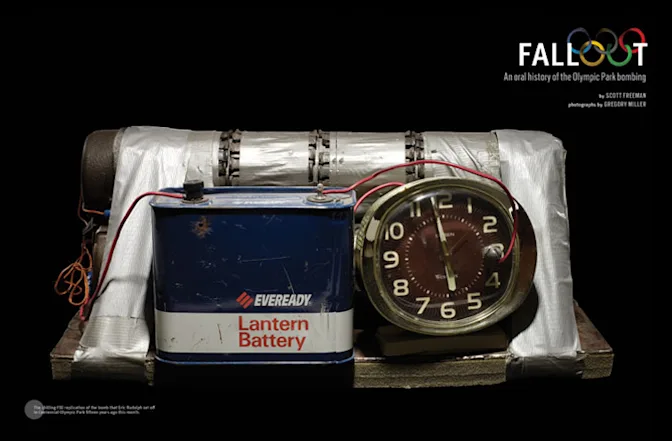
A Dark Night in Olympics® History
The Night That Shook Atlanta
On July 27, 1996, the world watched in horror as the Centennial Olympic® Park in Atlanta, Georgia, was transformed from a celebration of international sportsmanship into a scene of chaos and terror. A homemade bomb detonated, killing two people and injuring over 100 others. This tragic event left a scar on the 1996 Summer Olympics® and raised serious questions about safety and security at large public events.

The Incident: A Timeline
At 1:25 a.m., the joyous atmosphere of the Centennial Olympic Park was shattered. A 40-pound pipe bomb, concealed in a backpack near the sound tower, exploded with devastating force. The powerful blast sent nails and shrapnel tearing through the crowd. A spectator, 44-year-old Alice Hawthorne, was killed instantly. Melih Uzunyol, a Turkish cameraman, tragically suffered a fatal heart attack as he rushed toward the scene. Over 100 others were injured, with wounds ranging from minor cuts to severe trauma.
The Heroism of Richard Jewell
Security guard Richard Jewell first noticed the suspicious backpack while patrolling Centennial Olympic Park. Recognizing the potential danger, he immediately alerted the authorities and began evacuating the area. His swift actions brought bomb experts to the scene quickly. They identified the threat and worked urgently to clear the surrounding area. Despite their efforts to move spectators to safety, the bomb detonated before the evacuation could be fully completed. Jewell's vigilance and quick response undoubtedly saved many lives, even as the explosion resulted in fatalities and numerous injuries.

The Perpetrator: Eric Robert Rudolph
In the chaotic aftermath of the bombing, security guard Richard Jewell was mistakenly identified as a suspect, resulting in a media frenzy and a defamation lawsuit. However, the true culprit, Eric Robert Rudolph, was identified as a suspect in 1998 and evaded capture until 2003. Rudolph, a domestic terrorist harboring a deep-seated grudge against the federal government, confessed to this and other bombings with a chilling declaration of his motives. He aimed to disrupt the global event and embarrass the United States, citing his opposition to the country's legalization of abortion. His full plan was even more sinister, intending to knock out Atlanta's power grid and bring the Olympics to a standstill.
Rudolph later admitted that his plan went awry, calling the result "a disaster" and apologizing for harming innocent civilians, which he claimed was not his intention. Despite his apologies, the damage was done, and Rudolph was sentenced to life imprisonment without the possibility of parole.

The 1996 Atlanta Olympics bombing stands as a stark reminder of the vulnerabilities that exist even in moments of global unity and celebration. While the swift actions of Richard Jewell and the bomb experts prevented an even greater tragedy, the explosion left an indelible mark on the Olympic Games® and the city of Atlanta.
References: Atlanta Olympic Games bombing of 1996 | Fallout: An oral history of the Olympic Park bombing | Rudolph reveals motives
























